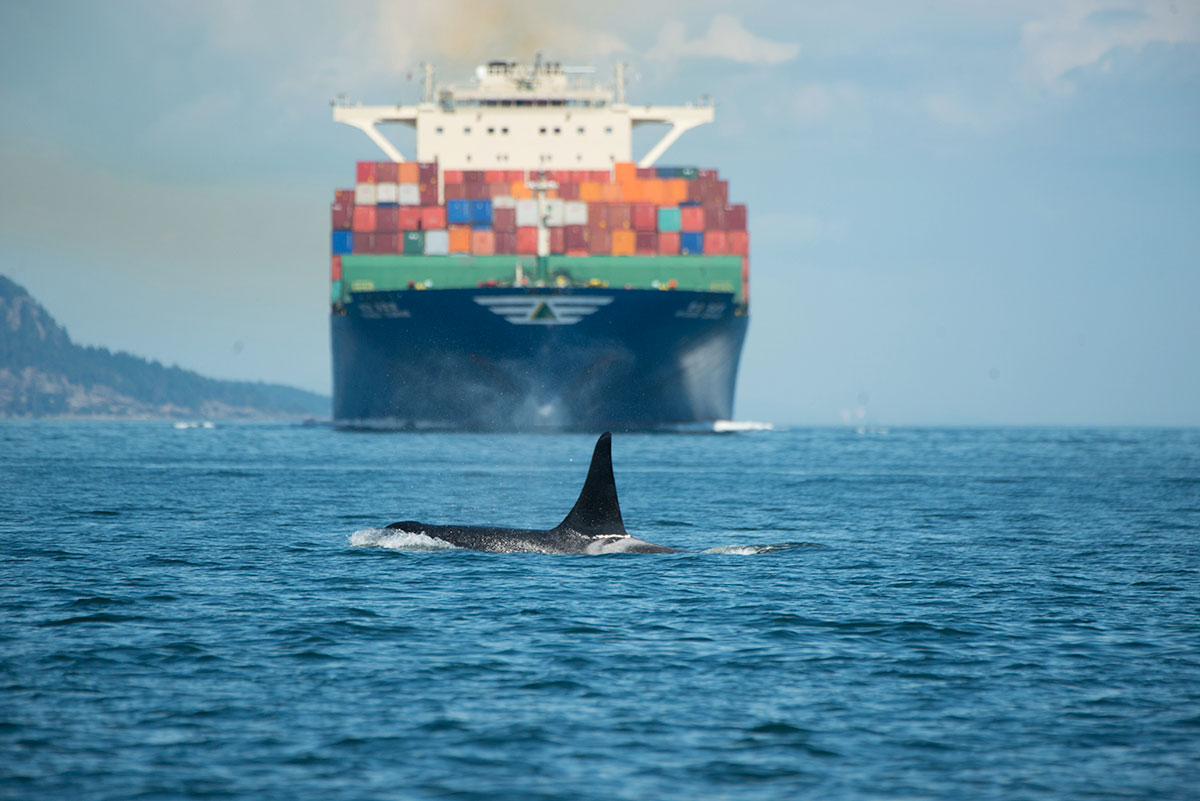COVID Fallout: Orca Whales in the Salish Sea
"The anticipation is that the quieter environment will help the killer whales in communicating, in socializing, in navigating and most importantly, in finding food."
"What we are seeing in the Salish Sea is levels of shipping noise that haven't been present for three or four decades. So we would have to go back to the 1980s before we would have heard such a quiet environment."
"They [killer whales] echo-locate to find their salmon. It's a very sophisticated sort of acoustic capability and the quieter the environment, they would have more success in finding prey."
"If we see them returning and staying in their critical habitat for longer periods ... if we have evidence of successful feeding on the salmon, then those are all good signs and in some sense the quieter environments can only have helped their survival."
Richard Dewey, associate director of science, Ocean Networks Canada
 |
| An endangered female orca leaps from the water while breaching in Puget Sound west of Seattle, Wash. Ocean Networks Canada says the drop in sea traffic brought on by COVID-19 will be a boon for killer whales. (The Associated Press) |
 |
| Orca L87 as a ship approaches. Capt. Alan Niles/Maya's Legacy Whale Watching |
Noise from ships and sounds made by marine mammals have been studied for years, as the commotion brought about the presence of heavy traffic in the ocean has complicated and endangered life for marine animals. Last month a paper was published in the Journal of the Acoustical Society of America which concluded that a rough 30 percent decrease in commercial shipping traffic into the Port of Vancouver from China alone in the first four months of 2020 has been occasioned as a by-product of COVID-19 which has impacted on world shipping.
Along with a diminished commercial sea traffic, a pause in whale-watching boats, cruise ships, recreational vessels and tankers has also been occasioned. All of which has led to a 75 percent noise reduction. Shipping noises have been steadily increasing, close to doubling every decade, creating a major concern for the endangered southern resident killer whales. Their hearing is similar to that of humans, communicating in a frequency band also similar to that of humans.
 |
| Orcas use sound to hunt and communicate. (Elaine Thompson/Associated Press) |
Whales use sound "continuously and all the time", in the ocean, said Dr.Dewey. Sound enables the whales to scope out kilometres' distance, while their eyesight allows them to see up to a distance of approximately five to ten metres in a very "turbulent" and murky environment in the Salish Sea. Loud sounds emanating as a result of human activity has a deleterious impact on the whales, increasing stress hormones when the whales are forced to 'shout' to make themselves heard in communicating over large distances.
By the time killer whales accomplish their seasonal return to the Salish Sea, scientists will have put in place 30 hydrophones to record the volumes of the sounds they make. The aim of the study is to yield vital data so that policy and regulatory changes can be enacted to aid survival of the animals.
In the past, killer whales would be seen in the Salish Sea in May and June, but their arrival has been delayed for the past four years, according to the director of the University of British Columbia marine mammal research unit.
Hypothetically, one reason for their late arrival -- sometimes as late as September -- may be insufficient numbers of salmon to feed on, although researchers believe that enough fish are present for the 72 remaining southern resident killer whales. Which has led scientists to wonder whether the whales are unable to hunt as a result of sound disruption from vessel traffic.
 |
| An orca swims in the Burrard Inlet near Port Moody. (Red Boat Charters) |
Labels: COVID-19, Environment, Killer Whales, Nature, Reduced Ocean Sound, Reduced Shipping

0 Comments:
Post a Comment
<< Home